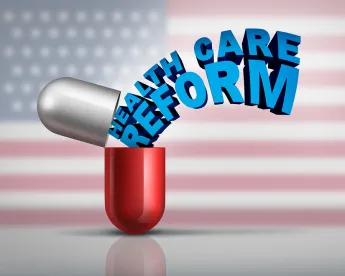This Week’s Dose
The impeachment inquiry proceedings are still moving forward, despite the Congressional recess. Surprise billing activity continued, and the Trump Administration issued an Executive Order on Medicare.
Congress
Ways and Means Issued Letter on Surprise Billing.
In a leaked letter, House Ways and Means Committee Chairman Richard Neal (D-MA) proposed a new approach to address surprise medical bills. Like previous proposals, patients would be insulted from liability in surprise billing situations. However, rather than requiring an independent dispute resolution process or setting a benchmark rate, Neal’s proposal creates a committee of Executive branch departments and stakeholders that would engage in a negotiated rulemaking process to develop regulations specifying resolution of payment disputes between providers and plans. According to the letter, staff will be drafting legislative text over the recess. This approach could represent a political resolution to one main sticking point between the various surprise billing legislative proposals. However, it likely also prolongs the timeline for resolving surprise medical bills and this approach may not achieve as much savings as other approaches, which can make it a less attractive option for policy makers.
Administration
Trump Signed Executive Order on Medicare.
The Trump Administration issued an Executive Order (EO) aimed at strengthening Medicare. The EO reiterates common Administration themes: opposing Democrats’ Medicare for All proposals, emphasizing opportunities to increase patient choice and transparency and reducing paperwork burdens. The EO also includes some specific policy ideas intended to strengthen Medicare Advantage (MA), including examining network adequacy requirements and increasing flexibility for plans. Notably, a report is required that would examine approaches to modifying Medicare fee-for-service (FFS) payments to more closely reflect the prices paid for services in MA and the commercial insurance market. While the EO is short on specifics, previous EOs have set the tone for Administration rulemaking and we expect to see efforts to implement some of these proposals in the forthcoming annual MA rate and policy setting process.
CMS Announced ACO Savings.
The Centers for Medicare and Medicaid Services (CMS) released performance results showing that the Medicare Shared Savings Program (MSSP) generated $739.4 million in net savings across 548 Accountable Care Organizations (ACOs) in 2018. In a Health Affairs blog post, CMS Administrator Verma summarized the findings that ACOs that received shared savings payments had decreases in inpatient, emergency room, and post-acute care spending and utilization, while ACOs with spending exceeding their targets tended to show increases in these areas. She also noted that almost 11 million FFS beneficiaries now get care from an ACO. Last December, CMS overhauled the program under the Pathways to Success final rule, which required ACOs to move to two-sided risk arrangements on a shorter timeline. It remains to be seen what impact that rulemaking will have on participation in MSSP ACOs because the first cohort under the new regime began participation in July 2019.
New Rules at OMB.
Three new rules are now pending review at the Office of Management and Budget (OMB). The Medicaid and CHIP Managed Care final rule would make changes to the 2016 Obama administration Medicaid managed care rule. It is likely to give states more freedom to define network adequacy in Medicaid managed care and to set the capitation rates paid to Medicaid plans. The Interoperability and Patient Access final rule is expected to move the health care industry toward a more accessible and interoperable health care ecosystem. The Department of Health and Human Services (HHS) Notice of Benefit and Payment Parameters for 2021 is an annual proposed rule that sets forth payment parameters and provisions related to the risk adjustment and risk adjustment data validation programs, cost-sharing parameters, and user fees for issuers offering plans on Federally-facilitated Exchanges and State-based Exchanges using the Federal platform.
Courts
Judge Signals a Freeze on Public Charge Rule.
A federal judge in California is considering whether to block a recent Trump Administration rule that would add the use of public benefits like Medicaid to the list of factors immigration officials can cite when denying green card applications. A coalition of states and advocacy groups, led by California, is challenging the rule, which is set to take effect on October 15, 2019. While the judge noted during oral arguments this week that she does not see a compelling reason to issue a nationwide injunction, she asked the plaintiffs to provide additional rationale for a narrower freeze. Legal challenges to the rule have also been filed in Washington, New York, Maryland and Illinois, adding to the list of Trump Administration policies that have been challenged in court.
Next Week’s Diagnosis
One more week of recess ahead of Columbus Day.
Additionally, OMB has concluded its review of both the CMS Stark proposed rule and the HHS Office of Inspector General and Anti-Kickback Safe Harbor proposed rule. We may see them as soon as later today. We will be reviewing and writing on both.





 />i
/>i
